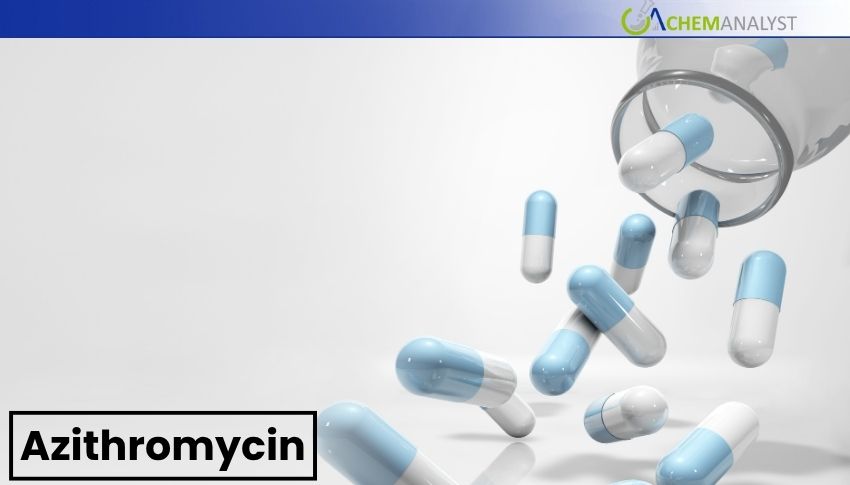Welcome To ChemAnalyst

Azithromycin prices in the U.S. are expected to rise in August 2025 following the implementation of a 25% tariff on Indian pharmaceutical imports. As India supplies nearly half of U.S. generic drugs, including Azithromycin, the tariff may lead to higher treatment costs and potential shortages. With limited domestic alternatives and possible new trade tensions with China, elevated Azithromycin prices could persist through the coming months.
The price of Azithromycin in the United States is expected to rise in August, following the implementation of a 25% tariff on pharmaceutical imports from India. On July 30, President Donald Trump announced the tariff through Truth Social, and it became effective on August 1. The action is a massive change in US policy and is to directly affect the supply chain of the American pharmaceutical industry, especially vital antibiotics such as Azithromycin.
India currently exports close to 47% of the generic drugs that are utilized in the United States, such as the standard antibiotics Azithromycin. India has been a long-time source of cheap, quality drugs. Imports of such drugs like Azithromycin will increase in cost with this tariff now being in effect, making it more costly overall for American consumers and healthcare providers.
While the United States is heavily dependent on Indian and Chinese manufacturers for both finished formulations and Active Pharmaceutical Ingredients (APIs), including Azithromycin, India is expected to absorb the impact of the tariff with minimal disruption. Exporters in India are likely to shift their focus toward European and other international markets where demand remains strong and trade terms are more favorable.
The imposition of tariffs is expected to introduce supply chain delays, cost burdens, and challenges in maintaining the availability of essential drugs like Azithromycin in the U.S. healthcare system. Replacing India as a supplier for generics like Azithromycin is not an immediate option. Developing large-scale pharmaceutical manufacturing capacity domestically or establishing new supply routes in other countries could take three to five years. Until then, the current dependence on Indian imports remains critical.
The tariff comes amid broader signals of protectionist trade measures under consideration. Proposals include a 10% tariff on imports from BRICS nations and a 200% tariff on selected pharmaceutical products. Additionally, the ongoing 90-day pharmaceutical tariff truce between the United States and China is set to expire on August 12. If the agreement is not renewed, it could further strain global pharmaceutical trade and increase the cost of APIs and finished drug products entering the U.S. market, including Azithromycin.
Azithromycin prices in the U.S. are expected to increase steadily throughout August due to the immediate impact of the 25% import tariff on Indian pharmaceuticals. If additional tariffs are introduced or if the trade agreement with China ends without extension, upward pricing pressure may persist into September and the fourth quarter of 2025. Limited domestic alternatives and continued global supply chain disruptions point to a sustained period of elevated prices for Azithromycin and other critical generic medications in the coming months.
We use cookies to deliver the best possible experience on our website. To learn more, visit our Privacy Policy. By continuing to use this site or by closing this box, you consent to our use of cookies. More info.
